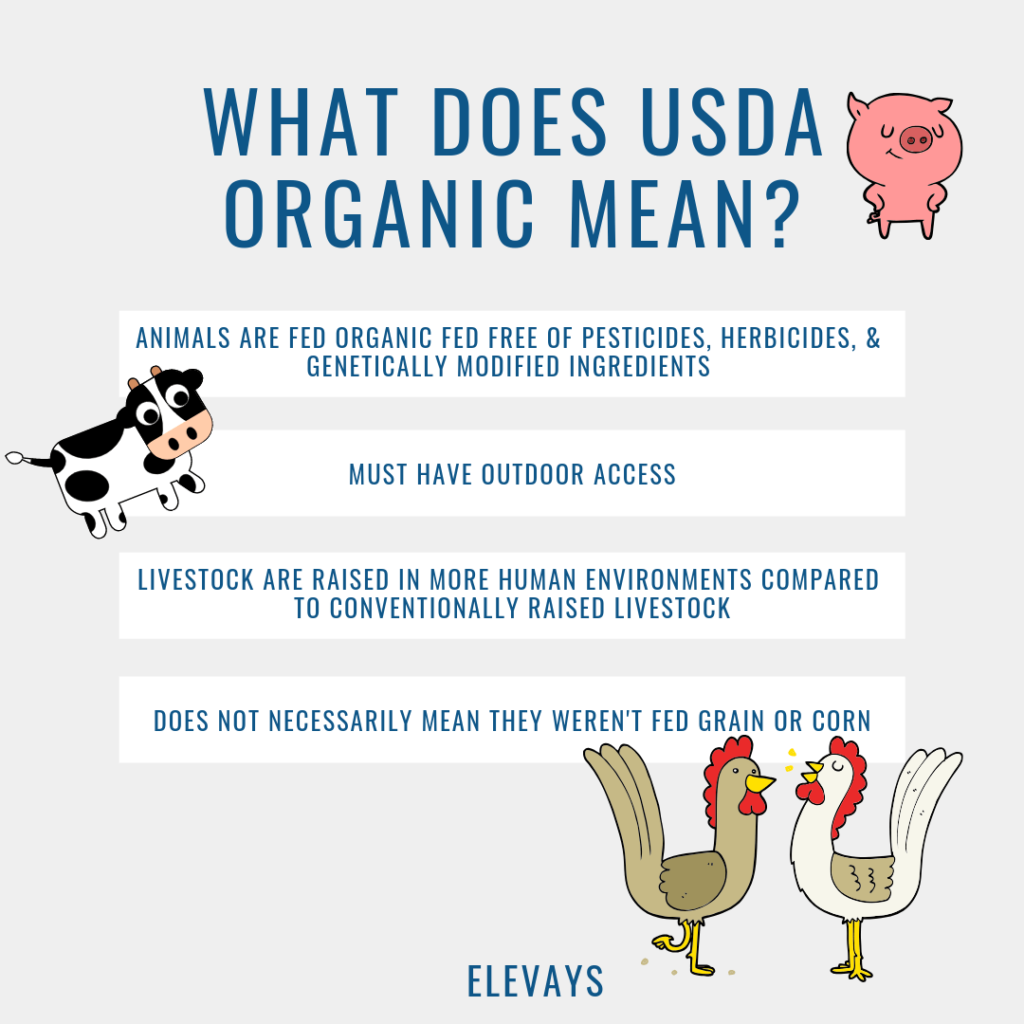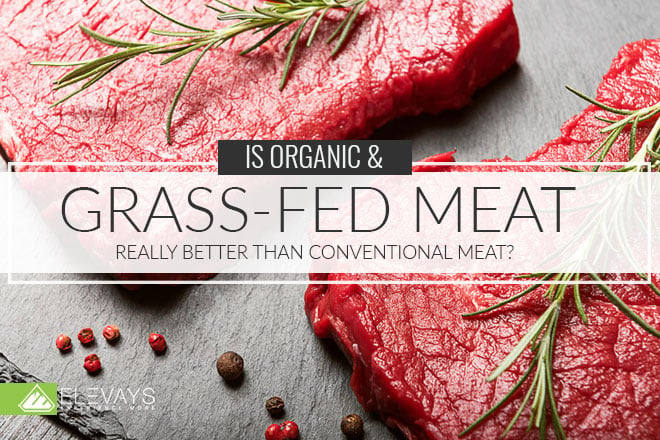It’s crazy to think that just a couple years ago buzz words like “hormone free” and “antibiotic free” weren’t even in our vocabulary. Fast forward to today, and even the worst conventional brands are slapping those phrases on their packaging.
Many people assume that if a chicken breast or a couple cuts of steak say “hormone and antibiotic free” then they are automatically healthy. While an animal that escaped injection is definitely better than one who didn’t, that doesn’t mean they are safe.
Organic vs. Hormone/Antibiotic Free

TRUTH BOMB:
You’re
Already killing it!
If You Were More Consistent With Your Wellness Routine, You’d Be Unstoppable.
USDA Certified Organic livestock are raised in more humane environments compared to conventionally raised livestock. To be USDA certified organic, animals must have outdoor access and be fed organic feed. This means that these animals are exposed to fresh air, sunshine, and feed fed free of herbicides, pesticides, and genetically modified ingredients.
Although a package may have a hormone/antibiotic free label on it, that doesn’t mean the animal was provided outdoor access or given organic food. This means that the livestock was most likely still subjected to genetically modified feed sprayed with pesticides or herbicides. Unfortunately, almost all of the corn and soy grown in the U.S. is genetically modified due to the herbicide glyphosate.
The World Health Organization classifies glyphosate as a probable human carcinogen and is linked to increased incidence of lymphoma in farm workers. This is why it is so important to purchase organic meat! When you purchase USDA certified organic meat or poultry, you know you are consuming livestock raised on feed without genetically modified ingredients.
Grass-Fed vs. Organic
Grass-fed is also a relatively new buzzword- and we like it. Organic does not necessarily denote grass fed and grass fed does not necessarily mean organic. The organic seal just means that the feed (possibility of grain and corn) is organic. Grass-fed means that the livestock were grazed on grass and other natural forage.
When purchasing meat or poultry always opt for organic AND grass- fed so you know what you are purchasing is the healthiest possible choice for your family.
Is Grass-Fed Better Than Organic?
Because an animal that is grass-fed can still be subjected to herbicides and pesticides if they are not also organic, grass-fed does not necessarily mean better. Another important factor to take into consideration is the affordability of the organic seal. The organic seal is expensive so local farmers and butchers who practice ethically may not be able to afford the organic seal. If you know and trust your local farmers, buying poultry and meat from them is a less expensive way to make sure you’re getting the healthiest meats.
Personally, we love to put our money back into the local community and support small local farmers. Small farms tend to care about every phase of the process, from feed to treatment all the way to slaughtering– compared to CAFO (confined animal feeding operations) animals whose treatment is disturbing and slaughtering methods are disturbing.
Where to Buy Organic and Grass-Fed Meats
Eating Organic can be expensive, especially if you’re buying for more than one. You can find antibiotic and hormone free at pretty much every grocery store these days. If organic and grass-fed is not in your budget, always try to buy antibiotic and hormone free.
Sources:
- “Organic vs Antibiotic Free Meat.” Organic Palace Queen, 28 June 2017, www.organicpalacequeen.com/organic-vs-antibiotic-free-meat/.
- “Only Eat Meat With This Certification.” Mercola.com, articles.mercola.com/sites/articles/archive/2018/01/16/go-grass-fed-organic.aspx.





READ the Latest
Health Habits
Longevity
Health Habits
Health Habits